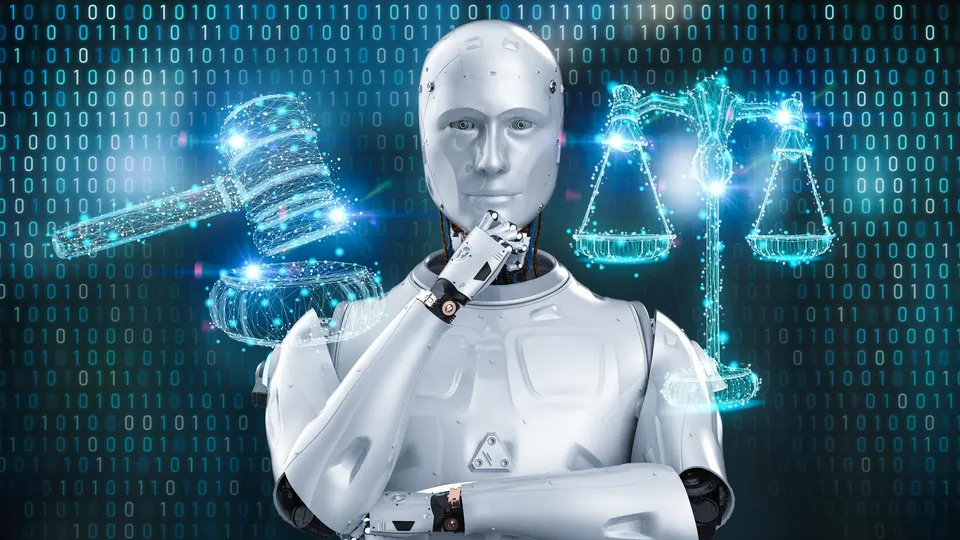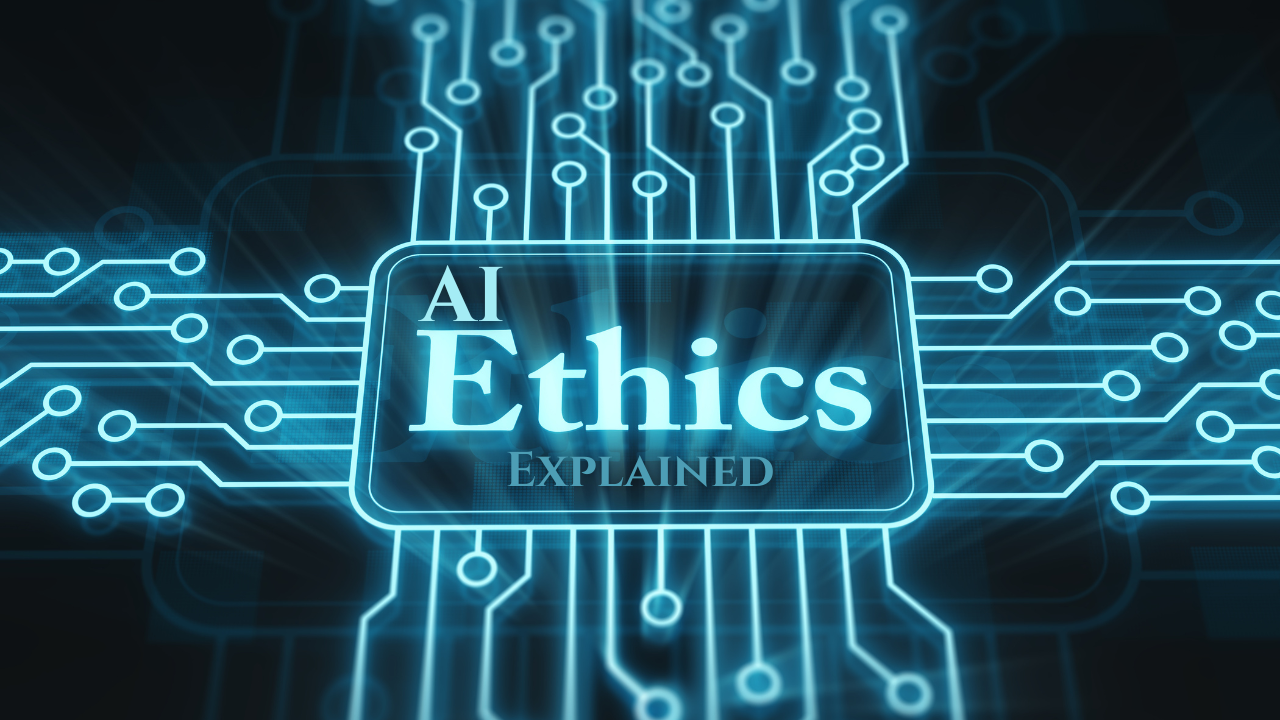AI Ethics is a crucial interdisciplinary field dedicated to ensuring that artificial intelligence systems are developed, deployed, and used in ways that align with human values, promote societal well-being, and respect fundamental rights. It’s about building AI that is not just smart, but also fair, transparent, and accountable.
Key Takeaways
- AI Ethics explores the moral principles guiding the design, use, and governance of AI.
- It addresses critical concerns such as algorithmic bias, privacy, transparency, and accountability.
- Ethical AI aims to prevent harm, foster trust, and ensure AI benefits all of humanity.
- Key principles include fairness, non-maleficence, human oversight, and explainability.
- Implementing AI Ethics requires robust frameworks, continuous monitoring, and diverse perspectives in development.
Table of Contents
Why AI Ethics Matters More Than Ever
As artificial intelligence continues to permeate every facet of our lives, from personalized recommendations to critical decision-making in healthcare and finance, the ethical implications of its design and deployment become increasingly profound. Without careful consideration of AI Ethics, these powerful technologies could inadvertently perpetuate or even amplify societal harms.
The importance of AI Ethics stems from the potential for AI systems to impact individuals and society in significant ways:
- Bias and Discrimination: If AI models are trained on biased data, they can learn and perpetuate those biases, leading to discriminatory outcomes in areas like hiring, loan approvals, or even criminal justice.
- Privacy Concerns: AI often requires vast amounts of data, raising questions about data collection, usage, consent, and the potential for surveillance or misuse of personal information.
- Lack of Transparency: Many advanced AI systems operate as “black boxes,” making it difficult to understand how they arrive at their decisions. This lack of transparency can hinder accountability and trust, especially in high-stakes applications.
- Accountability: When an autonomous AI model makes a harmful decision, determining who is responsible—the developer, the deployer, or the user—can be a complex ethical and legal challenge.
Integrating ethical considerations from the outset helps build trustworthy AI systems that society can embrace and rely on. It’s about designing AI not just for efficiency or profit, but for human well-being.
“AI ethics refers to the principles that govern AI’s behavior in terms of human values. AI ethics helps ensure that AI is developed and used in ways that are beneficial to society.” —SAP
Core Principles of Ethical AI
Numerous organizations and experts worldwide have proposed frameworks and principles for responsible AI development. While specific wordings may vary, several core tenets consistently emerge as fundamental to AI Ethics:
- Fairness and Non-Discrimination:
- Principle: AI models should treat all individuals and groups equitably, avoiding unfair biases and discriminatory outcomes.
- Implication: This requires scrutinizing training data for biases, implementing fairness metrics, and designing algorithms that promote justice and inclusivity.
- Transparency and Explainability:
- Principle: The decision-making processes of AI models should be understandable, interpretable, and transparent to relevant stakeholders.
- Implication: Developers should strive for “explainable AI” (XAI) where possible, allowing users to understand why an AI system made a particular decision. This builds trust and enables identification of errors or biases.
- Accountability:
- Principle: There should be clear mechanisms and individuals responsible for the design, deployment, and outcomes of AI systems.
- Implication: This involves establishing governance structures, audit trails, and legal frameworks that define liability when AI systems cause harm.
- Privacy and Data Governance:
- Principle: AI models must respect individual privacy rights and handle data securely and responsibly throughout its lifecycle.
- Implication: Adherence to data protection regulations (like GDPR), robust cybersecurity measures, and principles of data minimization and consent are essential.
- Human Agency and Oversight:
- Principle: AI systems should augment human capabilities rather than diminish human autonomy or decision-making. Humans should retain ultimate control and the ability to intervene.
- Implication: This often translates to “human-in-the-loop” or “human-on-the-loop” designs, ensuring human oversight, especially for high-risk AI applications.
- Beneficence and Non-Maleficence:
- Principle: AI should be developed to promote well-being and do no harm to individuals, society, or the environment.
- Implication: This involves conducting thorough risk assessments, considering societal and environmental impacts, and designing AI for positive, pro-social outcomes.

Challenges in Implementing Ethical AI
While the principles of AI Ethics are widely accepted, their practical implementation presents significant challenges:
- Technical Complexity: Achieving transparency in complex deep learning models can be technically difficult.
- Data Scarcity/Quality: Ensuring unbiased and representative datasets can be challenging, especially for underrepresented groups.
- Balancing Innovation and Regulation: Striking a balance between fostering rapid AI innovation and establishing necessary ethical safeguards and regulations.
- Global Harmonization: Developing universal ethical guidelines that can be applied across different cultures, legal systems, and societal values.
- “Ethics Washing”: The risk that organizations might superficially adopt ethical principles for public relations without genuine commitment to their implementation.
Addressing these challenges requires ongoing collaboration among policymakers, technologists, ethicists, legal experts, and civil society. Frameworks like the UNESCO Recommendation on the Ethics of Artificial Intelligence and the OECD AI Principles provide valuable guidance for navigating these complexities.
By prioritizing AI Ethics, we can shape a future where AI serves humanity’s best interests, enhances human capabilities, and contributes to a more just and equitable world.
Frequently Asked Questions
What is algorithmic bias?
Algorithmic bias occurs when an AI model produces unfair or discriminatory outcomes due to biases present in the data it was trained on, or in the assumptions made during its design. This can lead to unequal treatment for certain groups of people.
Why is transparency important for AI?
Transparency in AI is crucial because it allows users, regulators, and developers to understand how an AI model reaches its decisions. This understanding is essential for building trust, identifying errors, debugging, ensuring accountability, and mitigating potential harms, especially in critical applications.
How does AI Ethics relate to human rights?
AI Ethics is deeply intertwined with human rights as it seeks to ensure that AI systems uphold fundamental rights such as privacy, non-discrimination, fairness, and human dignity. Ethical frameworks often build upon established human rights principles to guide responsible AI development and deployment.
- Generative AI Design Funding: Spacely AI Secures US $1M in Pivotal Round
- What Are AI Agents? AI Agents Explained
- Opendoor Technologies Stock Needs AI: The Future of iBuying Depends on Intelligent Tech
- Writing is Thinking: The Enduring Value of Human-Generated Scientific Writing in the Age of LLMs
- Protégé AI for UK Lawyers: 7 Powerful Ways It’s Transforming Legal Tasks

